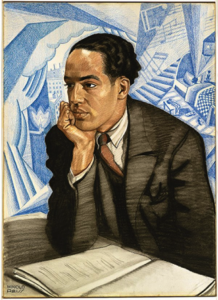By Edward Dugger III
Edward Dugger III is the President of Reinventure Capital and an impact investing pioneer. The reflections below were originally shared through the Reinventure “Ed Talks” series.
What happens to a dream deferred?
I could not have been more excited. It was September 1988, and I was on a flight from Boston to Los Angeles to meet with Michael Milken. Several months earlier I had received a call from his representative asking for a meeting in Boston. “Ed, you are a venture capitalist who has pioneered in providing entrepreneurs of color with equity investments, and we think you can help us,” he said. Our conversation confirmed what I already knew. Milken and his firm, Drexel Burnham, had concluded that there was a huge, untapped investment opportunity in the form of founders of color, who were essentially invisible to the rest of the investment banking market.
More importantly, they had declared their intention to capture that overlooked market opportunity. To do so, they would bring billions of dollars to market. Now they were undertaking a methodical process of aligning existing sources of equity capital for founders of color, and partnering to create new ones. The first of these was Georgetown Partners, a $100 million fund. Other partnerships were under discussion. Mine was one of them.
Heading for LA, was I actually seeing the dawn of a new era in America? One for which generation after generation of people of color, aspiring to the American Dream, had been waiting?
Does it dry up like a raisin in the sun?
As an African American, it was hard not to think about how far we had come. The civil rights battles for human dignity and justice under our Constitution had already been fought in Montgomery, Selma, Birmingham and countless schools, public facilities and places of worship across the country. The first generation of people of color whose lives the movement had changed were emerging as seasoned educators, scientists, politicians and corporate executives. Blacks were beginning to appear on the boards of major corporations and Ken Chenault was on his way to becoming CEO of American Express. Surely now at last black entrepreneurs would begin to emerge and move into the mainstream of American business in ever increasing numbers as well.
The key to progress was moving into the mainstream, which had proven elusive. Few entrepreneurs of color had been able to navigate on their own. I understood why. As I grew up, I had witnessed up close the barriers to entrepreneurship for black folks. I watched my uncle search for opportunities to launch a significant business. A chemist at the MIT Lincoln Laboratory, a US Dept. of Defense research center, my uncle did advanced research on materials. Later he filed for and received several material patents. His dream for decades was to use his patents to build a global family business. When his first patents had nearly run their course, he used his savings to file for more. But his dream was never fulfilled. There were no investors or banks interested in backing his business proposition. All the “friends and family” money he could ever expect to raise would fall far short of the amount needed to commercialize his inventions. As his patents expired, his dream — the American Dream of turning hard work, innovation and determination into family financial security for generations to come — slowly faded as well.
There were sources of capital my uncle could have turned to. The numbers dealer, the loan shark or maybe the benevolent wealthy white guy. And many black entrepreneurs, facing no alternative, went to these sources of capital. But, like my uncle, most decided not to, firm in the belief that the stakes were too high and the rewards would most likely accrue to someone else.
Maybe it just sags like a heavy load.
The wealthy white guy I was on my way to see was clearly cut from a different cloth. Milken had set his brethren in the investment banking world on their heels by being extraordinarily contrary. He didn’t buy the entrenched belief that a relatively small group of companies rated as “investment grade” deserved exclusive access to Wall Street’s capital. Pouring billions of dollars into hundreds of small, private and previously “un-bankable” companies, he had launched the likes of Ted Turner’s Cable News Network (CNN), Craig McCaw’s McCaw Cellular (now AT&T Wireless) and Steve Wynn’s Mirage Resorts (now Wynn Resorts) and put into motion a structural shift in global finance. He had also unleashed a wave of entrepreneurial activity changing the landscape of American business.
Then he crossed the tracks: he backed Reginald Lewis, a black lawyer and entrepreneur, whose business success beforehand was limited to the acquisition and operation of the $50 million McCall Pattern Company. Where prevailing Wall Street wisdom saw Lewis as modestly accomplished at best, Milken saw something else. He saw someone like Ted Turner, Craig McCaw and Steve Wynn, whose business acumen went far beyond the small platform he had masterfully built. Just black and overlooked.
So he helped Reginald Lewis leverage his success in the pattern business into the acquisition of the $1 billion Beatrice International Foods, a business consisting of 64 companies operating in 31 countries. At one fell swoop, this icon of Wall St. partnered with Lewis to create the first $1 billion company controlled by a black entrepreneur.
Milken and Drexel’s decision to back Lewis was strategic, not philanthropic. They had taken a cold, dispassionate look at their business opportunities.Their research and understanding of the changing demographics of America led them to a sharply contrarian conclusion: entrepreneurs of color, historically deprived of capital to grow their businesses, were a large untapped market representing a significant source of future growth for Drexel Burnham. Reginald Lewis’ test case had proven them right. Recent breakthrough successes by black entrepreneurs, such as Oprah Winfrey (Harpo), and Bob Johnson (Black Entertainment Television) building significant business in the media industry backed by white benefactors, were likely just the tip of the iceberg. A serious institutional infusion of capital into communities of color would unleash a much larger wave of entrepreneurial energy — and commensurate returns.
I intended to play an active role in unleashing that wave, and I was thrilled to contemplate the possibilities.
When my flight landed, I received a message stating flatly that my meeting was cancelled. Drexel Burnham was imploding*. The initiative died before it even started.
Or fester like a sore—
Nearly 30 years has passed. Drexel is gone. The architects of its visionary plan to invest behind entrepreneurs of color have dispersed. A new generation of investment bankers and private equity managers has emerged, but rather than seizing on Drexel’s insight, they are satisfied to provide financial services to a narrow network of clients just like them. They are apparently unaware of the vast missed opportunity, and blind to their contributions to our nation’s simmering social and economic inequities.
An entire generation has come and gone, but the new era has yet to arrive.
Or does it explode?
Like the Legend of Wall Street did so many years ago, Reinventure Capital has taken a cold hard look at its investment opportunities. The conclusion is the same, but even more compelling: entrepreneurs of color, still deprived of capital to grow their businesses, are a vibrant untapped resource pool representing a significant investment opportunity.
Today, that opportunity is further enhanced by the emergence of a new generation of entrepreneurs of color who are creating scalable businesses that deliver much-needed solutions to pressing social and environmental issues, and they are also creating life-changing jobs.
We want to tap into this pool and be a prime mover for rethinking the potential it holds. We believe that by creating opportunities within this pool, we will reap a wealth of opportunities with it. Please join us in reinventing investing. It’s time for a new era to begin.
Parts of Langston Hughes’ poem Harlem, often referred to as A Dream Deferred, are used in this blog.
*In Sept 1988, Drexel Burnham was sued by the SEC for insider trading and other unlawful acts, all of which involved Milken’s corporate finance department. The case was settled in 1989. In 1990, Drexel filed for bankruptcy.
Edward Dugger III is the President of Reinventure Capital and an impact investing pioneer. He previously managed The UNC Venture Funds as President of UNC Partners, Inc. As a prominent business and civic leader, Ed served as a director and member of the Executive Committee of the Federal Reserve Bank of Boston and is currently a Director and Member of the Executive Committee of Boston Community Capital, one of the largest regulated Community Development Finance Institutions (CDFIs) in the United States. He is the Chair of the Board of Boston Community Ventures and serves on the Executive Committee of the Massachusetts Business Roundtable. Based in Boston, Ed is a graduate of Harvard College and Princeton University (MPA-UP, Woodrow Wilson School of Public and International Affairs).
This article was originally published as Ed Talk #2 on ReinventureCapital.com. It was reposted with express permission from the author, Edward Dugger III.
Watch Ed Dugger, along with Nikki Silvestri, Co-Founder and CEO of Silvestri Strategies, Decker Ngongang, Senior Fellow at Frontline Solutions, and Ben Jealous, Partner at Kapor Capital, on the Equity and Opportunity panel at SOCAP15.








